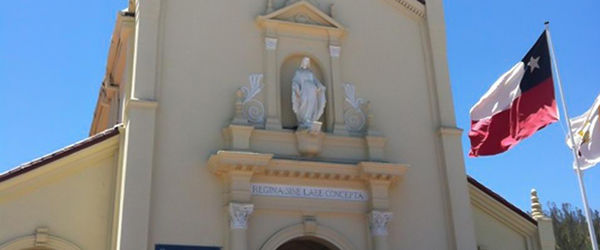Four years after the bishops' overwhelming approval of their teaching document "Forming Consciences for Faithful Citizenship," key leaders of the U.S. Conference of Catholic Bishops did not feel that they needed to reinvent the wheel.
The document highlighting issues that should be considered by Catholics as they make election-year decisions "was well worked out in 2007," said Bishop Stephen Blaire of Stockton, chairman of the Committee on Domestic Justice and Human Development, in an Oct. 13 telephone interview with Catholic News Service.
"It was quite a challenge to come to a consensus and then bring it to the whole body of bishops, which had never been done before," Bishop Blaire added. "It was hard fought and well thought out. Since it was a teaching document, we felt it was important to keep it intact."
That decision was reached during "several meetings" involving nine committees --- pro-life, migration, education, communications, doctrine, domestic justice, international justice and peace, cultural diversity, and laity, marriage, family life and youth, he said.
"It was definitely a general consensus that to reopen it would not have been helpful," said Bishop Blaire, formerly a priest and auxiliary bishop of the Archdiocese of Los Angeles before being named bishop of Stockton in 1999.
But the committee chairmen decided to write a new introductory note pointing out that "'Faithful Citizenship' reflects the teaching of the bishops and that it is still a very important statement for use in the formation of consciences," he said. "The issues contained in it were still very relevant and still quite appropriate and pertinent."
At their June meeting near Seattle, Archbishop Timothy Dolan of New York, USCCB president, asked the bishops in executive session whether they concurred in that approach. The response was positive, Bishop Blaire said.
"We decided in the note to lift up the issues that had been in our thinking and on our agenda in these last years, so we did that," he added. "And we wanted it to be clear that this document was not a voters' guide, but a teaching document for the formation of consciences."
The introduction focused on six "current and fundamental problems, some involving opposition to intrinsic evils and others raising serious moral questions":
--- Abortion "and other threats to the lives and dignity of others who are vulnerable, sick or unwanted."
--- Conscience threats to Catholic ministries in health care, education and social services.
--- "Intensifying efforts to redefine marriage" or to undermine it as "the permanent, faithful and fruitful union of one man and one woman."
--- An economic crisis that has increased national and global unemployment, poverty and hunger, requiring efforts to "protect those who are poor and vulnerable as well as future generations."
--- "The failure to repair a broken immigration system."
--- "Serious moral questions" raised by wars, terror and violence, "particularly the absence of justice, security and peace in the Holy Land and throughout the Middle East."
The 2007 document, approved by a vote of 214-4, was approved by the bishops' Administrative Committee at its mid-September meeting and made public Oct. 4.
The introduction says that "Faithful Citizenship," one in a series of documents that have been issued before every presidential election for nearly 35 years, "has at times been misused to present an incomplete or distorted view of the demands of faith in politics" but "remains a faithful and challenging call to discipleship in the world of politics."
"It does not offer a voters guide, scorecard of issues or direction on how to vote," the introduction adds. "It applies Catholic moral principles to a range of important issues and warns against misguided appeals to 'conscience' to ignore fundamental moral claims, to reduce Catholic moral concerns to one or two matters, or to justify choices simply to advance partisan, ideological or personal interests."
---CNS
{gallery width=100 height=100}gallery/2011/1021/blaire/{/gallery}

